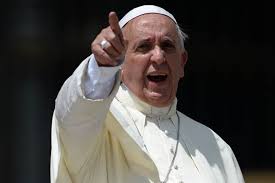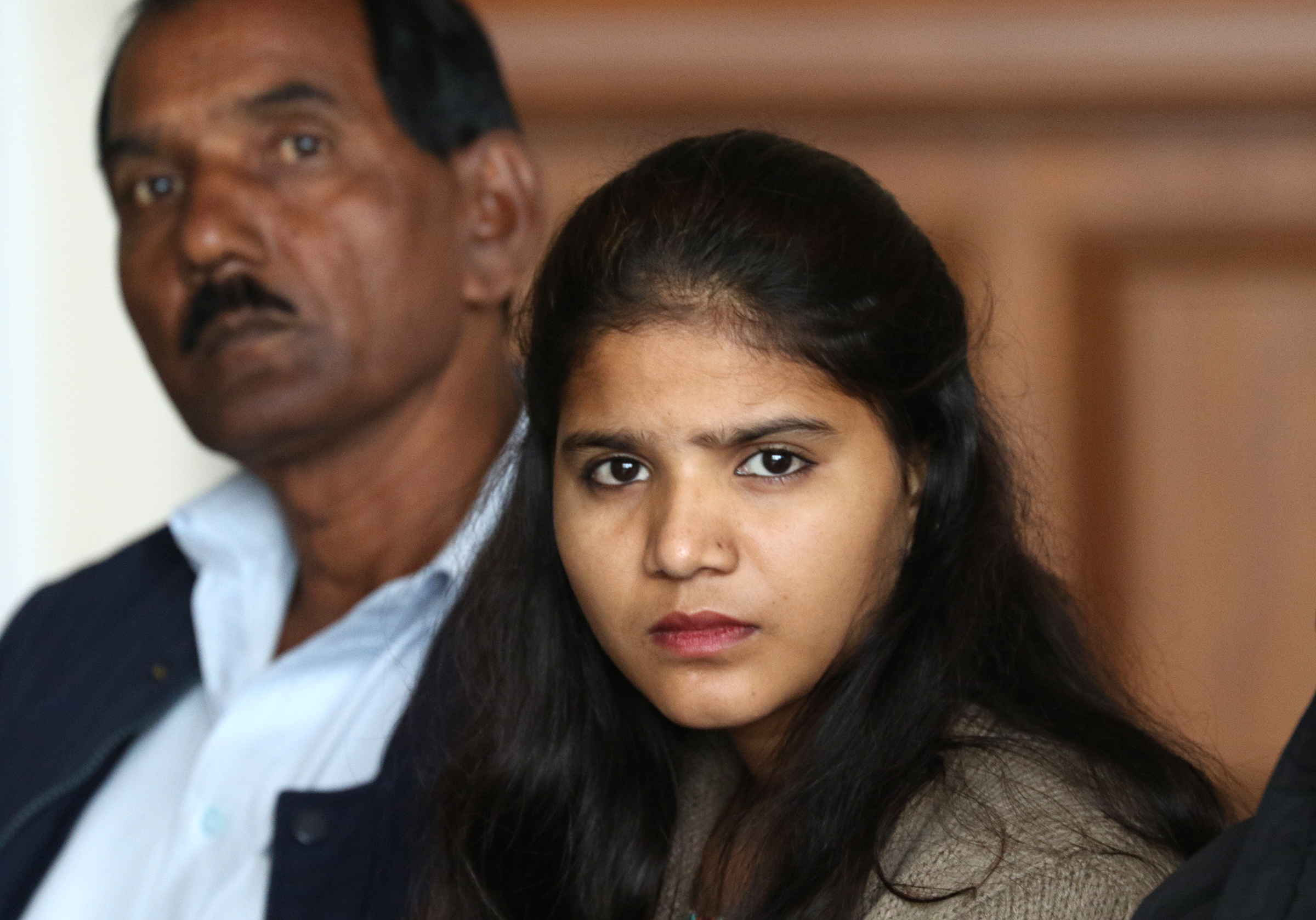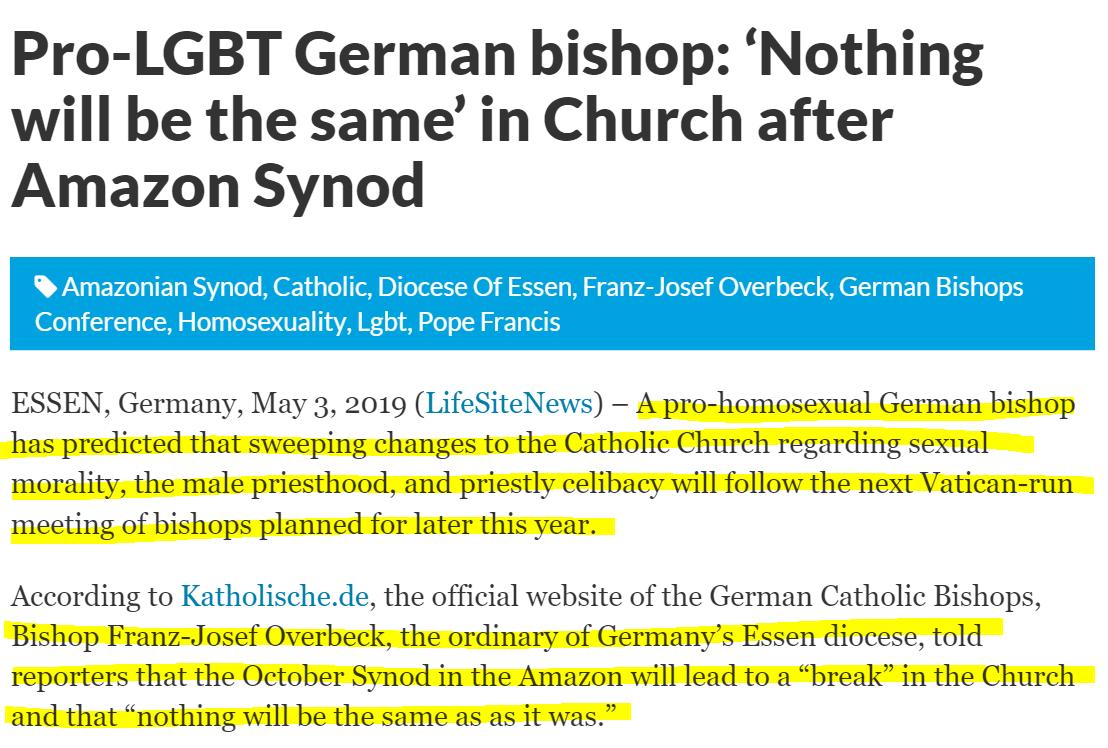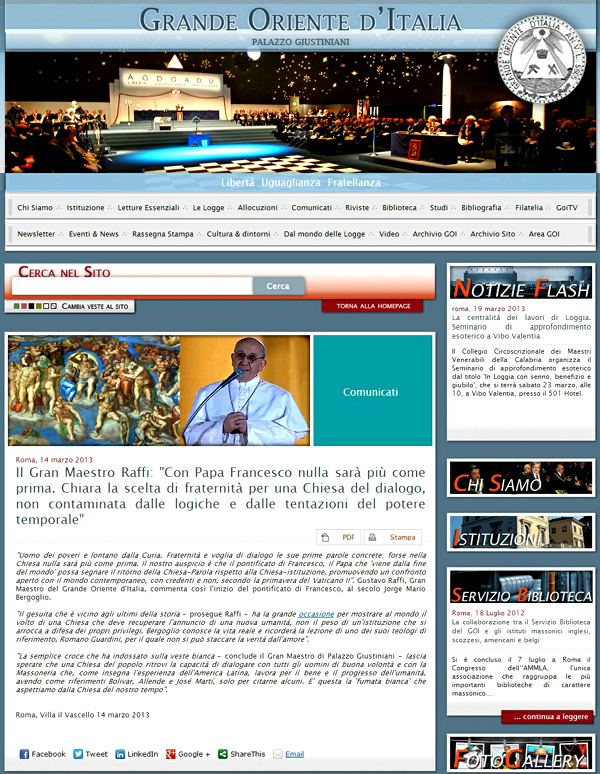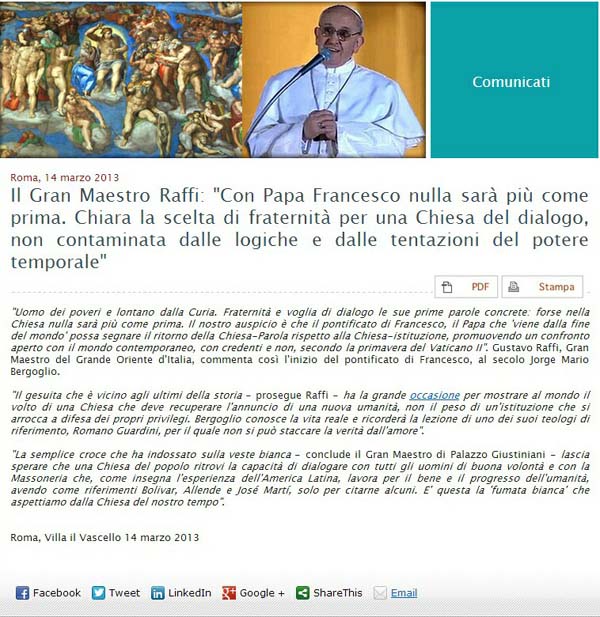Rather than priest Our Lord Jesus Christ as Salvator Mundi, this pompous, arrogant puss-filled Argentinian boil on the Seat of Peter has once again, thrown himself in with the fascist-globalist scum of the Soros world and set himself against the people of Christ.
When he is judged, may he go out condemned; and may his prayer be turned to sin. May his days be few: and his bishopric let another take. Ps. 109: 7,8.
ADDRESS OF HIS HOLINESS POPE FRANCIS
TO THE PARTICIPANTS OF THE MEETING PROMOTED BY THE
DICASTERY FOR THE SERVICE OF THE INTEGRAL HUMAN DEVELOPMENT
ON THE THEME: ENERGY TRANSITION AND CARE OF OUR COMMON HOUSE
Casina Pio IV
Friday, June 14, 2019
Eminence,
Distinguished Managers, Investors and Experts,
Ladies and Gentlemen ,
I extend a warm welcome to all of you on the occasion of
this Dialogue on the Energy Transition and Protection of the Common Home.
Finding yourself in Rome, after last year 's meeting , is a positive sign of
your constant commitment to work together in a spirit of solidarity in order to
promote concrete steps for the protection of our planet. For this I am
grateful.
The present, according to Dialogo, takes place at a critical
moment. Today's ecological crisis, especially climate change, threatens the
very future of the human family, and this is not an exaggeration. For too long
we have collectively ignored the fruits of scientific analysis, and "catastrophic
predictions can no longer be viewed with contempt and irony" (Enc. Laudato
si ' , 161 ). Any discussion on climate change and the energy transition must
therefore assume the best fruits of scientific research available today and
allow it to be touched in depth (see ibid. , 15 ).
A significant development in the last year has been the
publication of the Special Report on the Impact of Global Warming of 1.5ºC on
Pre-Industrial Levelsby the Intergovernmental Panel on Climate Change. That
Report clearly warns that the effects on the climate will be catastrophic if we
exceed the 1.5ºC threshold outlined in the Paris Agreement goal. The Report
also warns that it is only a little over a decade to reach this global warming
barrier. In the face of a climatic emergency, we must take appropriate
measures, in order to avoid committing a grave injustice towards the poor and
future generations. We must act responsibly well considering the impact of our
actions in the short and long term.
In fact, it is the poor who suffer the worst impact of the
climate crisis. As the current situation shows, the poor are those who are most
vulnerable to hurricanes, drought, floods and other extreme weather events.
Therefore, courage is certainly required to respond "to the increasingly
desperate cry of the earth and its poor" ( Address to the participants in
the International Conference on the third anniversary of Laudato si ', 6 July
2018). At the same time, future generations are about to inherit a very ruined
world. Our children and grandchildren should not have to pay the cost of the
irresponsibility of our generation. I apologize but I would like to emphasize
this: they, our children, our grandchildren will not have to pay, it is not
right for them to pay the cost of our irresponsibility. In fact, as it is
becoming increasingly evident, young people demand a change (see Laudato si ' ,
13 ). "The future is ours," the young people shout today, and they
are right!
Your meeting focused on three interconnected points: first,
a correct transition; second, the price of carbon; and third, transparency in
reporting climate risks. These are three enormously complex problems and I
thank you for having proposed them to the discussion and at your level, which
is a serious, scientific level.
A correct transition, as you know, is referred to in the
Preamble to the Paris Agreements. This transition involves managing the social
and employment impact of moving to a low-carbon society. If managed well, this
transition can generate new employment opportunities, reduce inequality and
increase the quality of life for those affected by climate change.
Second, a carbon price policy is essential if humanity wants
to use the resources of creation wisely. The failure to manage carbon emissions
has produced a huge debt that will now have to be repaid with interest from
those who come after us. Our use of common environmental resources can be
considered ethical only when the social and economic costs of their use are
recognized in a transparent manner and are fully supported by those who use
them, rather than by other populations or future generations (see ibid. , 195
).
The third theme, transparency in reporting climate risks, is
essential because economic resources must be exploited where they can do the
most good. Open, transparent, scientifically founded and regulated
communication is in everyone's interest, making it possible to move financial
capital into those areas that offer the widest «possibilities for human
intelligence to create and innovate, while protecting the environment and
creating more job opportunities "( ibid. , 192 ).
Dear friends, time is running out! The reflections must go
beyond mere exploration of what can be done, and focus on what needs to be
done, from now on. We cannot afford the luxury of waiting for others to come
forward, or give priority to short-term economic benefits. The climate crisis
requires a determined action from us, here and now (see ibid. , 161 ) and the
Church is fully committed to doing her part.
In our meeting last year , I expressed concern that
"Civilization requires energy, but the use of energy should not destroy
civilization!" [1] . Today a radical energy transition is needed to save
our common home. There is still hope and the time remains to avoid the worst
impacts of climate change, provided that there is prompt and resolute action,
because we know that «human beings, capable of degrading themselves to the
extreme, can also be overcome, return to choose the good and regenerate
yourself "( Laudato si ' , 205 ).
I thank you once again for responding generously to the
invitation of the Department for the Integral Human Development Service . I
assure you of my prayers for your decisions; I cordially invoke the blessings
of the Lord on you and your families. Thank you.
[1] Speech to the participants in the meeting for managers
of the main companies in the oil, natural gas and other energy-related
businesses , 9 June 2018.
© Copyright - Libreria Editrice Vaticana





